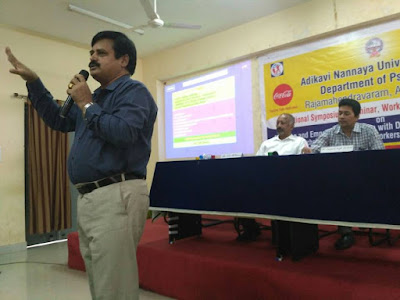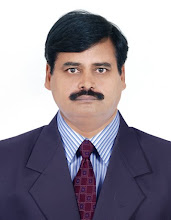Dear All
Continued the process of Publications as an opportunity and paper entitled: " HEALTHY LIVING OF SENIOR CITIZENS – SERVICE MODELS" in Social Vision, an International Journal of Jan-March 2017. This paper has priority as Senior Citizens are the most valued Human Recrudesces who have contributed significantly to their Family, Community and Nation.
The Abstract & working models of the same is pasted below as:
..................................................................
Senior Citizens
(60+) who contributed significantly for their Family, Community and the Nation
are the most valued human resources. They are the key facilitators between the
older generation and the younger generation for better transformation of
systems, traditions, and values with connectivity. Their population is 8% of
the total population of the Nation and at present it may be much more. Among
this group majority lives in rural villages. In view of better health care, the
elders have got longevity and have strength to contribute for others. They are
retired from the job or services but not from life. Due to various reasons,
elders are living away from their families and thus marginalized including
isolation and are facing the consequences by leading unhealthy poor quality of
life. This group needs to be seen as two faces of the same coin where on one
side they need care and rehabilitation and on other side can contribute for the
people and community. The challenges of this group can be transformed into
opportunities so that a healthy environment can be created at Home, Community
and Care Homes. The proposed model home of providing care and rehabilitation
services to the Senior Citizens and Persons with Intellectual and Developmental
Disabilities under a single roof will satisfy the needs of both the groups in
inclusive and accessible environments with improved quality of life. There
exist several service models and RWAs & CSOs can work on partnership basis
with Government and Private with better DIME and PART. The suggested service
channels are simple, replicable, scalable and sustainable matching to the
dynamics of the environment given.
Key Words: Environment, Isolation, Healthy
Living, Opportunities, Rehabilitation, Empowerment, Quality of Life.
.............................................................................
Looking forward to support for such groups for happy and lathery living ...
All the best.
All the best.





















